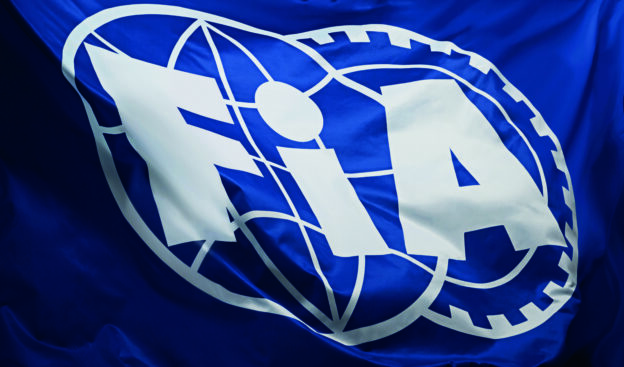Sprint format
The F1 Commission voted unanimously in favour of changes to the Sprint format. These will now come into effect at the first Sprint event of the season - the 2023 FIA Formula 1 Azerbaijan Grand Prix (28-30 April).
Following discussion at the F1 Commission meeting in February, clear objectives were set by the FIA, Formula 1 and all teams to investigate how the Sprint format could be improved to increase the level of intensity on-track across the weekend, making as many sessions as possible result in a competitive sporting outcome. Following this mandate, the sport's Advisory Committees and key Formula 1 stakeholders returned a series of recommendations targeting a Sprint format that exists separately within a Grand Prix weekend and does not result in the Sprint setting the grid for Sunday's main event, delivering more 'jeopardy' through a reduction in practice time and providing a greater incentive to drivers to race hard on Saturday.
The Sprint will therefore become a standalone element, with a qualifying session - to be called Sprint Shootout - to determine the grid for the Sprint, which will carry the same points system as last season. The outcome of the Sprint will therefore no longer determine the grid for the Grand Prix, with Qualifying for the Grand Prix taking place on Friday.
The proposals that have been agreed by all stakeholders result in the following format changes:
- Friday - A single Free Practice session followed by Qualifying for the Grand Prix (standard Qualifying format).
- Saturday- Qualifying for the Sprint (Sprint Shootout) followed by the Sprint.
- Sunday - Grand Prix.
The Sprint Shootout will be a shortened version of traditional Qualifying:
- SQ1 for all 20 drivers will be 12 minutes.
- SQ2 for the remaining 15 drivers will be 10 minutes.
- SQ3 for the remaining top ten drivers will be 8 minutes.
Tyres:
- For the Sprint weekend in Baku the dry allocation will be 2x Hard, 4x Medium, 6x Soft.
- Tyre returns will be limited to only after P1 and the Sprint.
- There will be a limit of 1 set of mandatory specification unused dry tyres for each Sprint Shootout period. Hence: SQ1: 1x Medium, SQ2: 1x Medium, SQ3: 1x Soft.
Penalties will be applied as follows:
- A grid penalty incurred in P1 or Qualifying will apply to the Race.
- A grid penalty incurred in the Shootout will apply to the Sprint.
- A grid penalty incurred in the Sprint will apply to the Race.
- A breach of parc fermé will result in a pitlane start for the Sprint and Race.
- PU penalties will only apply to the Race (unless they are also a parc fermé breach).
Following this successful vote and subsequent approval by the World Motor Sport Council by e-vote, all stakeholders believe that this will boost the spectacle of Sprint weekends and enhance track action for fans around the world. Thanks to the close working relationship between the FIA, FOM as well as the sport's ten Formula 1 teams, moving the changes from concept to regulation has been accomplished swiftly and positively.
Updates to the Technical and Sporting Regulations
Miner updates to the 2023 and 2024 Technical Regulations were approved by the Commission.
Proposals to increase the number of Power Unit elements were discussed during the meeting, with approval given to increase the number of Internal Combustion Engine (ICE), Turbo Charger, MGU-H and MGU-K elements for 2023 only from three (3) to four (4).
The time allocated to the grid procedure for a Grand Prix will be increased from 40 to 50 minutes. At certain races, this additional time will be used for the presentation of the drivers to the fans.
The updated definition of 'working on a car' during a pit stop penalty (Article 54.4.c) that was introduced as a Sporting Directive in March will be included within the Sporting Regulations.
Cost Cap exclusions for Sustainability initiatives
A specifically dedicated working group within the Financial Advisory Committee (FAC) has developed a proposal for the introduction of an exclusion of costs in respect of certain sustainability initiatives from 2023 onwards, with particular focus on environmental concerns.
Following support from the FAC members and approval of the Commission, certain Sustainability Initiative Costs will now be excluded from the Cost Cap. These exclusions cover, amongst other things, costs associated with installing sustainable infrastructure, auditing and monitoring of Competitors' carbon footprint, donations to charities engaged in the promotion of environmental sustainability projects and carbon offset programmes. The FAC will continue to refine this regulation.
✅ Check out more posts with related topics:
2 F1 Fan comments on “F1 Sprint format changes set to increase on-track intensity”
Comments are closed.














Which is good, although temporarily increasing the PU element allocations by one for ICE, MGU-K, MGU-H, & TC is unnecessary.
Better, but better still scrap it altogether
✅ Checkout the latest 50 F1 Fans comments.